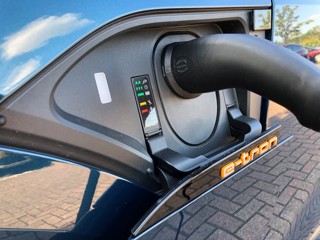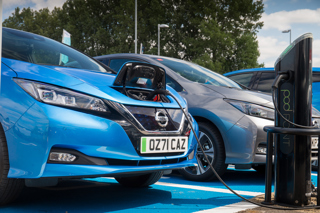German Chancellor Angela Merkel’s coalition has followed the lead set by French president Emmanuel Macron in increasing its grant funding for electric vehicle (EV) buyers as part of its COVID-19 stimulus measures.
German Chancellor Angela Merkel and German Finance Minister and Vice-Chancellor Olaf Scholz agreed on a stimulus package worth €130 billion euros (£116.3bn) to boost its economy’s recovery from the coronavirus pandemic.
And, as in France, increased for EVs and hybrids was a core part of the plan, with a lowering of the nation’s renewable energy surcharge also helping boost plug-in vehicle uptake via reduced electricity bills in 2021 and 2022.
The move should add pressure for the UK government to deliver its own stimulus for the automotive sector, with suggesteions that "calls for Government intervention in the automotive retail sector is only going to grow".
The German government has doubled its share of the existing purchase incentive for electric cars and hybrid cars, paying a grant of €6,000 (£5,370) for a pure EV in addition to an OEM-backed subsidy of €3,000 (£2,685).
In-line with its eco-friendly car purchase incentive scheme, the German government also plans to reform its tax system to ensure higher-emitting vehicle pay higher taxes from January 2021.
Merkel said: “We couldn’t just set out a stimulus package that was done in the traditional sense.
““It had to be a package of measures that contained a view to the future. And this is precisely what we have emphasised.”
What Car? suggested today (June 4) that the UK would need its Government to deliver its own plans to boost car retail in order to maintain the sector’s early momentum following the re-opening of car showrooms in England this week.
New car registrations declined by 89% in May, according to today’s figures from the Society of Motor Manufacturers and Traders (SMMT) and What Car? editorial director, Jim Holder, said that “a new Scrappage Scheme could be a positive lever” to help the sector recover from the COVID-19 lockdown dip.
“With another month of lockdown in May, it’s no surprise to see such small numbers of new cars registered in the UK. With dealers now allowed to reopen, the industry will look at ways to recover from this slump,” he said.
“The calls for Government intervention in the automotive retail sector is only going to grow in the coming weeks. Unlike 2009, the market is starting from effectively zero. That’s a big hill to climb.
“A new Scrappage Scheme could be a positive lever, not only in supporting sales and raising more taxes, but in boosting the emissions targets by taking older, more polluting vehicles off the road in favour of ultra-low carbon and electrified alternatives.”
The ICDP said in its ‘clean cars for a post-COVID recovery’ report that a CO2 emissions-reducing car scrappage scheme was needed in order to avoid a perfect storm of stalled sales and soaring fines from stringent new EU regulations driving carmakers ‘to the edge’.
It suggested an OEM-backed credit-based scheme, which would close the gap between potential fines and the vast revenues lost during the COVID-19 coronavirus lockdown.
The report said: “Without intervention in the market a recovery is likely to be protracted and this will lead to business failures amongst dealers, and potentially with manufacturers.”
Last month four industry associations representing Europe’s automotive sector have joined forces to call for car scrappage schemes as part of a 25-point COVID-19 coronavirus recovery plan.
ACEA, CECRA, CLEPA and ETRMA revealed their plan to ensure a strong restart in a joint letter sent to the European Commission and the European Parliament.
Eric-Mark Huitema, Director General of ACEA, the automobile manufacturers’ association stated: “Targeted measures will need to be taken to trigger demand and investment. Demand stimulus will boost the utilisation of our manufacturing capacity, safeguarding jobs and investments.”
















Login to comment
Comments
No comments have been made yet.